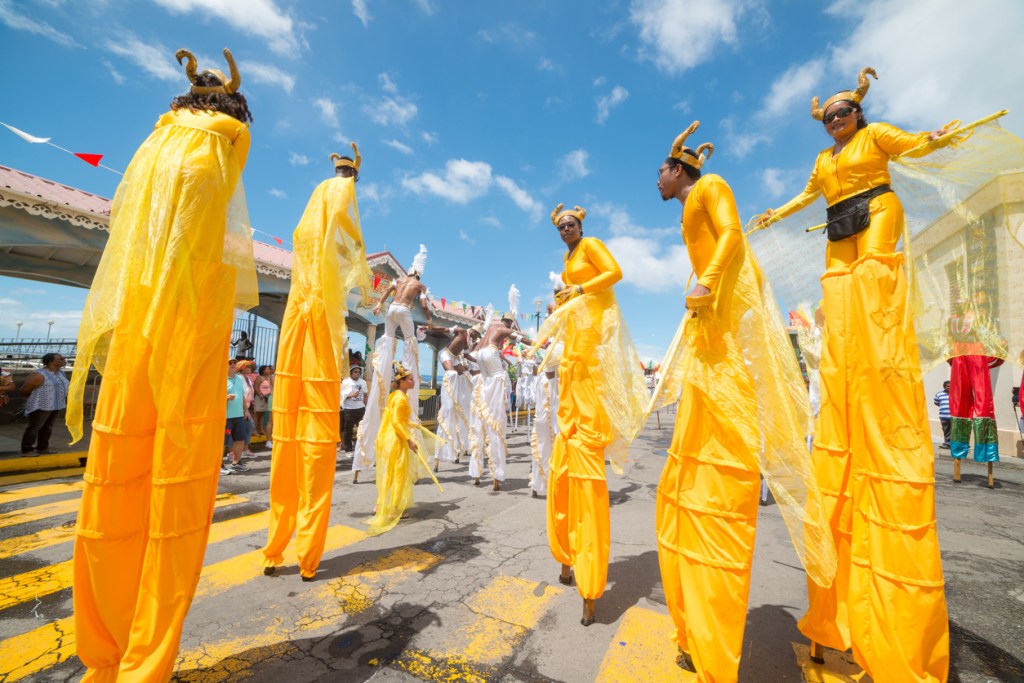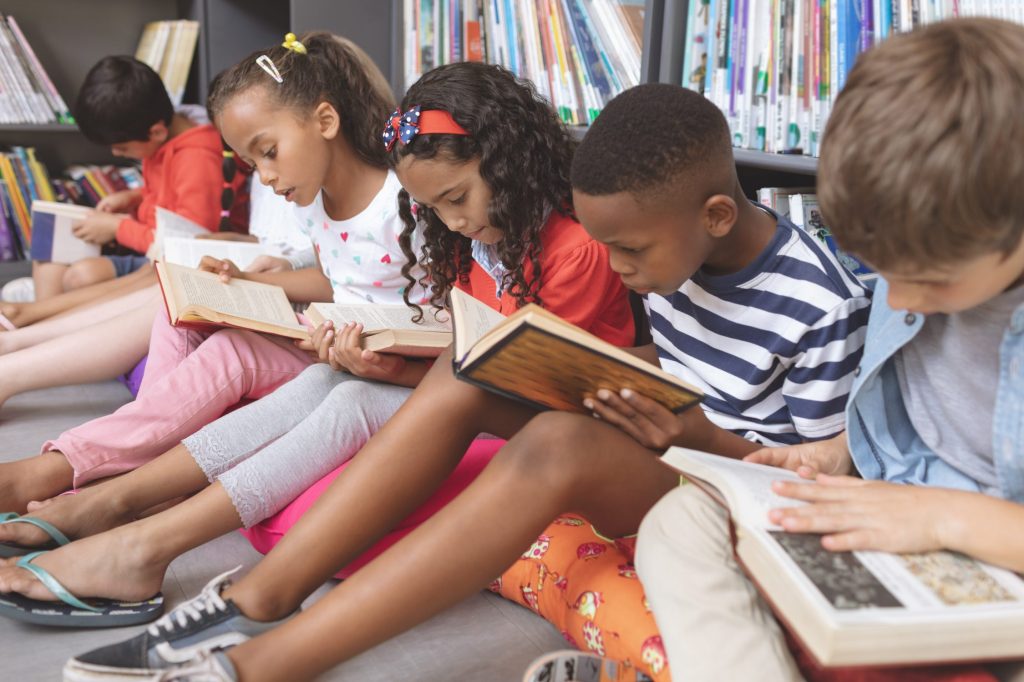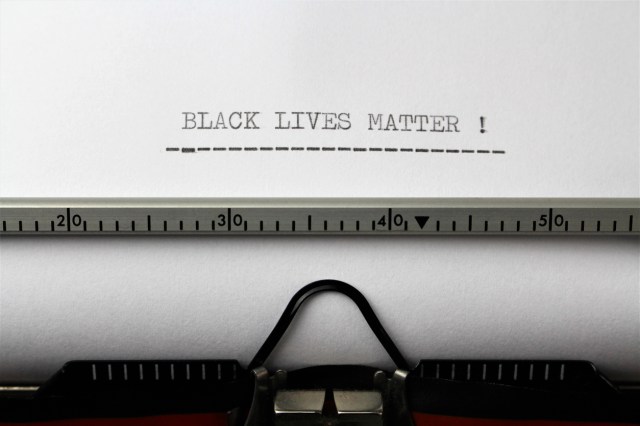Editor’s note: At Red Tricycle, we stand for justice, humanity and equal rights. We stand with Black families, co-workers, partners and the community to speak out against racism. We also stand for education and connection. Our writer, Ayren Jackson-Cannady, offers us not only perspective here but real, actionable ways to make positive change.
…and what to do when you just don’t have the words.
Last year, when my husband and I took our kids to a state fair, it was the first time our son was tall enough to ride a “scary” ride. Of course, the ride he chose (hello, Kamikaze!) was also the most popular with an estimated 30-minute wait time. Just when I was ready to throw in the funnel cake and find a new thrill ride, a family of stilt walkers—a mom, dad, and two kids—toddled towards us, stopping nearby for a quick performance.

They did karate kicks and jumping jacks. They hopped on one foot and then the other. They did a very elaborate chicken dance. The mom stilt walker even hula hooped…while juggling!
My attention quickly shifted from “this line is never going to move” to “how in the world are these people (these kids!) maneuvering with those things tied to their feet?”
So it goes with race and injustice.

Being Black in America is like being a stilt walker.
In order to get from point A to point B, it’s necessary to maintain a very specific amount of balance. Leaning too much to one side or the other—being too loud, too quiet, too educated, too uneducated, too this, too that—can be detrimental.
And, it doesn’t matter how skilled you are. It doesn’t matter how far you climb the corporate ladder. It doesn’t matter how much joy you bring into the lives of others or how AWESOME you are. When you miss a beat or skip a step (or go jogging…or birding…or shopping…) the bumps in the road of injustice can bring you down—and bring you down hard.
Question: Have you ever seen a stilt walker get back up on their own after a tumble? Nope. Because, guess what? They can’t. Stilt walkers rely on helpers on the ground to dust them off and lift them back up. White Americans who don’t have to walk on the stilts of inequality have the ability—the privilege—to be the helpers for communities of color.
Stepping out of the shadow of privilege is making someone else’s struggle your struggle.
It’s kicking those pebbles of racial injustice out of the way to prevent the tragic wrecks. And when Black moms, dads, and kids start to wobble, it’s steadying them by grabbing a stilt until balance is found.

And if the words never come. That’s okay, too. Sometimes—er, all the time—actions speak louder than words. Here are some things that you can DO with your kids that will help to open their eyes to race and injustice:
Read with them.
Even if they’re 10 and think they’re grown and too old to be read to…there are a bajillion books out there that address the topic of bias, diversity and injustice in a way that kids get. Start here:
- Harlem’s Little Blackbird: The Story of Florence Mills by Renee Watson (ages 3-7)
- Last Stop on Market Street by Matt de la Pena (ages 3-7)
- Something Happened in Our Town by Marianne Celano, Marietta Collins, and Ann Hazzard (ages 4-8)
- Rosa by Nikki Giovanni (ages 4-8)
- Separate Is Never Equal by Duncan Tonatiuh (ages 6-9)
- Little Leaders: Bold Women in Black History by Vashti Harrison (ages 8-11)
- Voice of Freedom: Fannie Lou Hamer by Carole Boston Weatherford (ages 9-12)
Connect with families not like your own.
Sure, you might have to do that virtually now. But when it’s safe for everyone, get together to serve other families in your community that might need help. Remember: It’s all about steadying those who are walking on stilts.
Play!
Surround your kids with toys and playthings that help cultivate appreciation and acceptance for people that don’t look like them. These are fun:
- Crayons from Crayola and People Colors that represent every skin tone on planet earth.
- Dolls from Pattycake Doll Company and Sugarfoots that represent the diversity in the world.
Watch films or TV shows that help educate on the topic of race and inequality.
If your kids have been watching a lot of television lately, they’re not alone. The next time they’re begging to turn on the TV, put one of these on for them:
This “stilts” example of how I envision race and injustice working may go completely over your kids’ heads (full transparency: I tried to explain it to my five-year-old and I completely lost her at the hula hooping mom). But I share all of this to say that the key to being able to talk to our kids about the injustices that have happened and continue to happen to Black people in the United States is to try to fully understand them ourselves. Once we know our history (because, news flash, Black history is everyone’s history) and we can comprehend the complexities of injustice, then we can openly and honestly communicate it to our kids.











